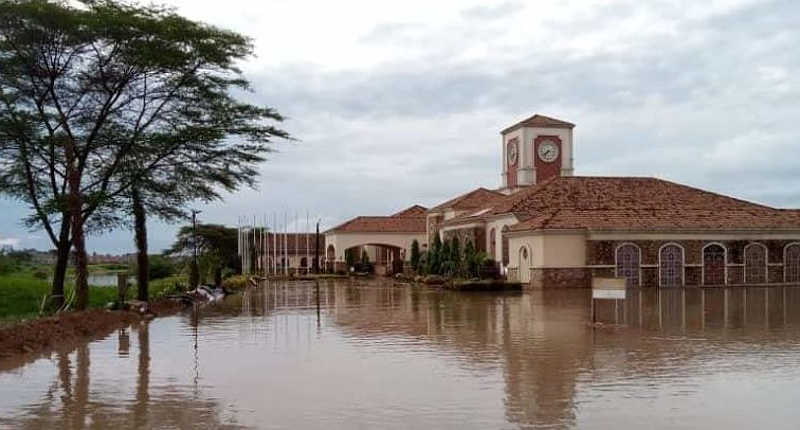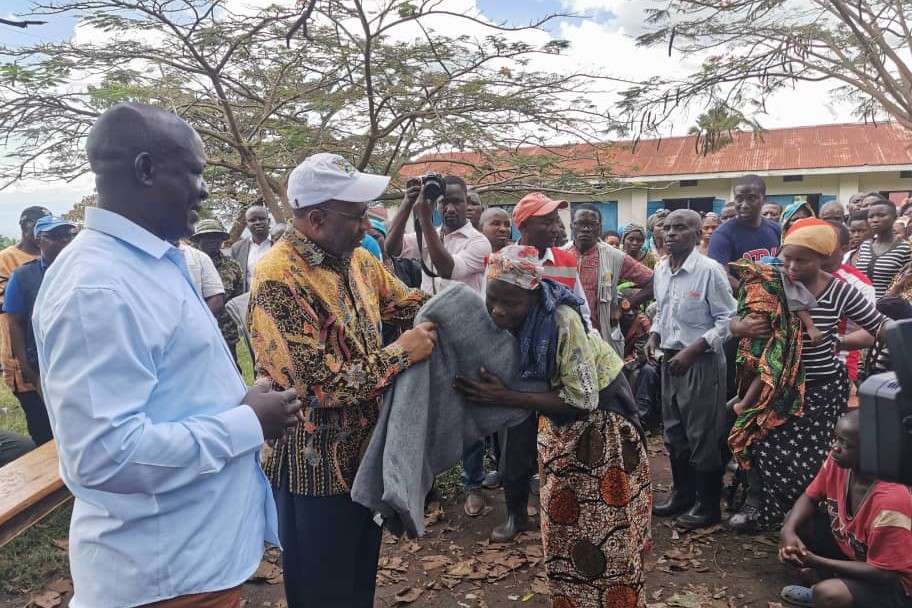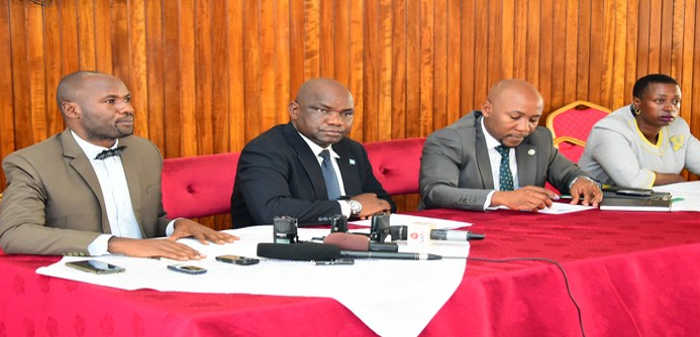In the latest and perhaps most pointed analysis of the effect of climate change on agriculture in Uganda , temperature and emergence of new crop diseases and pests, Report Frederick Senkeeto & Henry Lutaaya
Said to be USAID’s first ever such study relating to effects of climate change on agriculture in Africa and Latin America, the Uganda Climate Change and Vulnerability Assessment released this week, shows that Uganda will continue to experience significant variations in rainfall patterns as well as increases in temperature rendering the growing of coffee, among other crops, almost impossible as soon as 2030.
Using climate information recorded in Uganda over the past 50 years, the study shows that rainfall amounts and patterns will continue to vary significantly from year to year impacting greatly on Uganda’s agriculture and hence livelihoods of millions of people who depend on it, as major crops such as coffee, matooke, maize, beans, rice and sorghum will be affected.
The study noted that: “Year to year variations in rainfall are considerable and can exceed 30 percent of the total annual rainfall in some locations. Similarly, the onset of the rainy season can shift by 15-30 days and total duration of the season can change by 20 to 40 days.”
The study focused its research in six districts of Lira, Gulu, Luweero, Mbale, Isingiro and Kasese and looked at the effects of climate change on six of Uganda’s most important crops including Coffee, Matooke, Maize, Beans, Rice, Sweat Potato and Cassava.
Experts say that changes in rainfall variations would have significant effects on planting and harvesting especially for such crops as beans, maize and sorghum but would also impact coffee by disrupting flowering, maturity of beans as well as hampering harvest.
The study projected no significant and consistent change in annual rainfall for the 2030 horizon. However, it added: “Changes in seasonality are possible, the most consistent being a potential increase in rainfall in December, January and February, which is typically a dry season.”
The variations in rainfall and seasonality would not only disrupt planting, the study finds, they are likely to impact on the food value chain by increasing post-harvest losses for crops typically dried in the sun, as well as increasing the effect of contamination (aflatoxins) if dry season rainfall increases.
The high variations in rainfall have been attributed to Uganda’s location and landscape, prevailing winds and lakes which renders the country to various influences of weather such as sea-surface temperatures in the Atlantic, Indian and Pacific oceans.
The study also finds that Uganda will continue to experience an increase in temperatures with serious effect on coffee growing. The study finds that a projected increase of 2 degrees Celsius compared to per-industrial figures up to 2030 would require shifting of coffee growing (both Arabica and Robusta) to higher and cooler altitudes or be abandoned altogether.
This would however have serious implications for farmers and the entire Ugandan economy since coffee is the single biggest income and foreign exchange earner for farmers and the country respectively.
The study ranks coffee as the most vulnerable crop in Uganda to increases in temperature followed by Rice, Maize, Matooke, Beans, Sorghum. Cassava and Sweat Potatoes were found to be least vulnerable to projected increases in temperature since the two crops can withstand warmer environments than say coffee or beans.
The effect of higher temperatures, however, has been associated mostly with a projected outbreak of diseases for crops as well as pests for grain after harvest.
For instance, higher temperatures would create fertile ground for two major rice diseases – blasts and bacterial leaf blight. On the other hand, higher temperatures would create perfect conditions for the increase in fungal and viral diseases that attack beans, matooke and other major staples.
No safeguards
More importantly perhaps, the report finds that the effected population largely lacks adaptive capacity due to weak national and community level policies and structures such as community groups to address vulnerability to the effects of climate change.
The study found that the households most vulnerable to the effects of climate change are ones with less producers (i.e. providers), more dependants and women-led. Of the districts used in the study. Lira and Gulu which are still recovering from the affects of the 20 year Kony war in the north, are considered the most vulnerable to climate change, while Luweero was found to be the least vulnerable.
USAID recommends that in order to lessen the vulnerability of millions of people who depend on agriculture in Uganda, the government needs to make agriculture more vibrant by adopting new agricultural technologies and on-farm investments, as well as diversifying household revenue streams.
Experts further recommended that the government needs to do more research on crop varieties that can thrive better with increased rainfall variability and higher temperatures.
The researchers also recommended strengthening of agricultural farmer organizations and their capacity to link up with research institutions.
Among the options being recommended to counter the effects of climate change include promotion and adoption of disease resistant, fast maturing varieties to escape drought.
The adoption of biotechnology such as GMOs has been touted as a vital tool for developing solutions or traits to counter diseases since they require less time compared to traditional breeding mechanisms.









